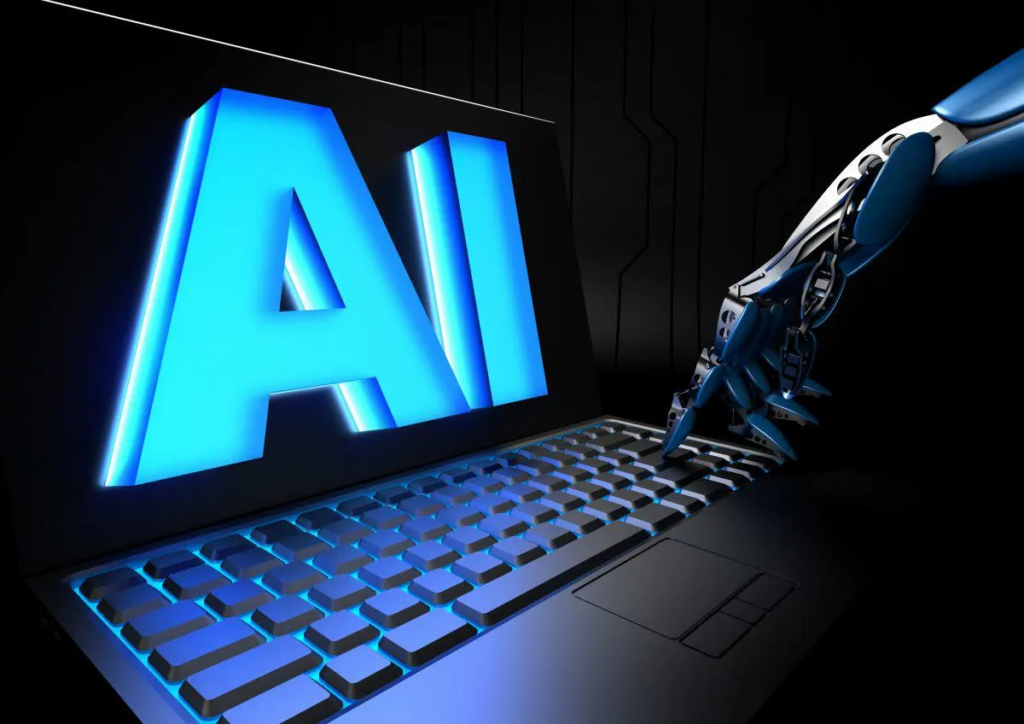During a two-hour keynote at Google’s annual developer conference, I/O, company executives mentioned artificial intelligence or “A.I.” more than 100 times. The new features were all extremely interesting. Google’s plans to reimagine search are particularly intriguing, but I can’t help but question if we’ve lost the meaning of artificial intelligence along the way.
On the one hand, the technology we’re discussing is quite remarkable, and thus, there’s a really fascinating lesson here for every business. On the other hand, it appears that A.I. is rapidly becoming a marketing term for “computers doing computer stuff.”

Marketing terms are acceptable, but A.I. is the technological equivalent of “organic.” Companies are rushing to add it to every product because it is the latest trend, and nobody wants to be left behind.
Do not believe that A.I. as a technology will cease to exist. I do not believe it has arrived yet.
ChatGPT, which is arguably the most popular “A.I.” product, is not artificial intelligence, despite being produced by a company named OpenAI. It is very impressive, but it is not a computer that can think independently.
It’s just a model that analyzes your query and determines the most probable combination of terms based on the enormous amount of data used to train it. That does not imply that it is not remarkable. It’s just not artificial intelligence.
Here is another perspective on the matter. Is it artificial intelligence if you have a large number of photographs and ask a piece of software to organize them according to the date and time they were taken? No, it’s merely a computer performing computer tasks. It simply examines the metadata and organizes it based on human programming.
Once upon a time, it was cutting-edge, remarkable technology. Today, it is so commonplace that we expect photo software to perform this function automatically.
Is it artificial intelligence if that software can categorize photographs based on who is in them? No. It is still a computer performing computer tasks. It’s very interesting, and examining pixels in an image to match them to a computerized map of other pixels is undoubtedly more complex than examining dates, but it’s still just human-programmed file organization.
What if this software could eliminate a distracting element from the background of one of these images? Using software like Photoshop or Pixelmator Pro, humans can accomplish this. Using the various brushes and tools, you can manually paint new pixels that resemble the background over the unwanted pixels in your image.
Some software can automate the process. Google Photos has been able to do this on its own using an A.I. feature called Magic Eraser, according to the company. Now, the company claims it can also alter your photographs, including recomposing your subject and painting in any missing elements.
However, your computer does not recognize quality photographs. It only knows what humans have told it is desirable, and it eliminates the intermediate stages of dragging a mouse around an interface in order to provide you with what you desire more quickly and efficiently than you could on your own.
This has always been the purpose of utilizing computers. No longer do you need to understand Photoshop. Just use Google Photos. It is only computers performing computer tasks.

Or consider Apple. Tim Cook stated on the company’s most recent earnings call that AI has been integrated into features such as ECG, fall detection, and malfunction detection. Is it however? Is this an AI?
Machine learning (ML) is not the same as what most people think of when they hear the term artificial intelligence (A.I.). The company trained its algorithm on enormous data sets to teach your Apple Watch to recognize when you’ve tumbled off a ladder, but machine learning (ML) is not the same thing.
When introducing the new Pixel 7a at Google I/O, Rick Osterloh, chief of the company’s hardware division, stated that the Pixel has always been a “AI-powered smartphone.” Really? What even does that mean?

Believe this simply indicates that Google has incorporated a variety of useful features into the Pixel.
The reason why all of this is important is because words matter. What you term something is significant. The majority of people do not comprehend how computers and software operate, so it probably appears otherwise.
You can get away with referring to features as interesting. A.I. because we have never encountered devices that can be thought of independently. Instead, we’ll settle for computers that can converse and invent information.
I am certain that artificial intelligence will become a reality one day. Simply referring to interesting software features as artificial intelligence (AI) because that’s what everyone is talking about does a disservice to your consumers and the technology. For the time being, let’s just focus on computers performing computer tasks.

